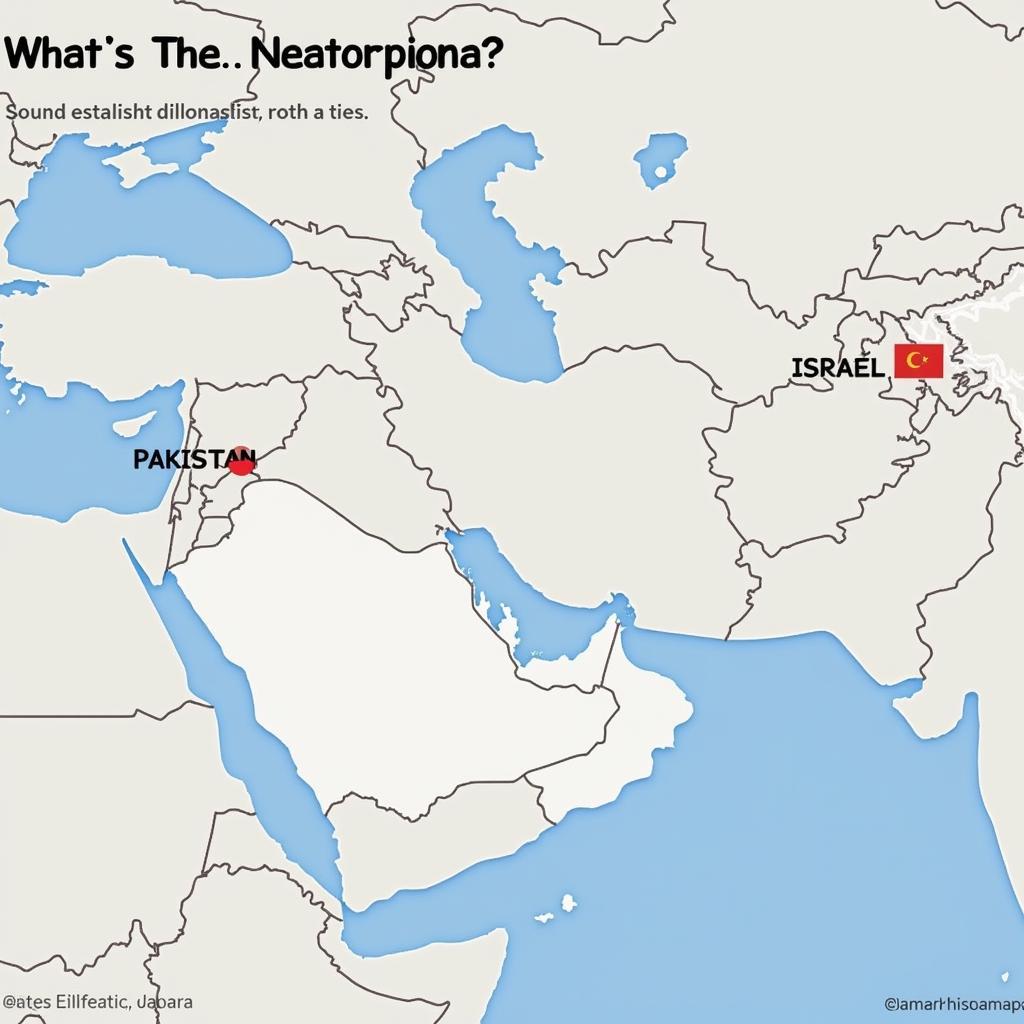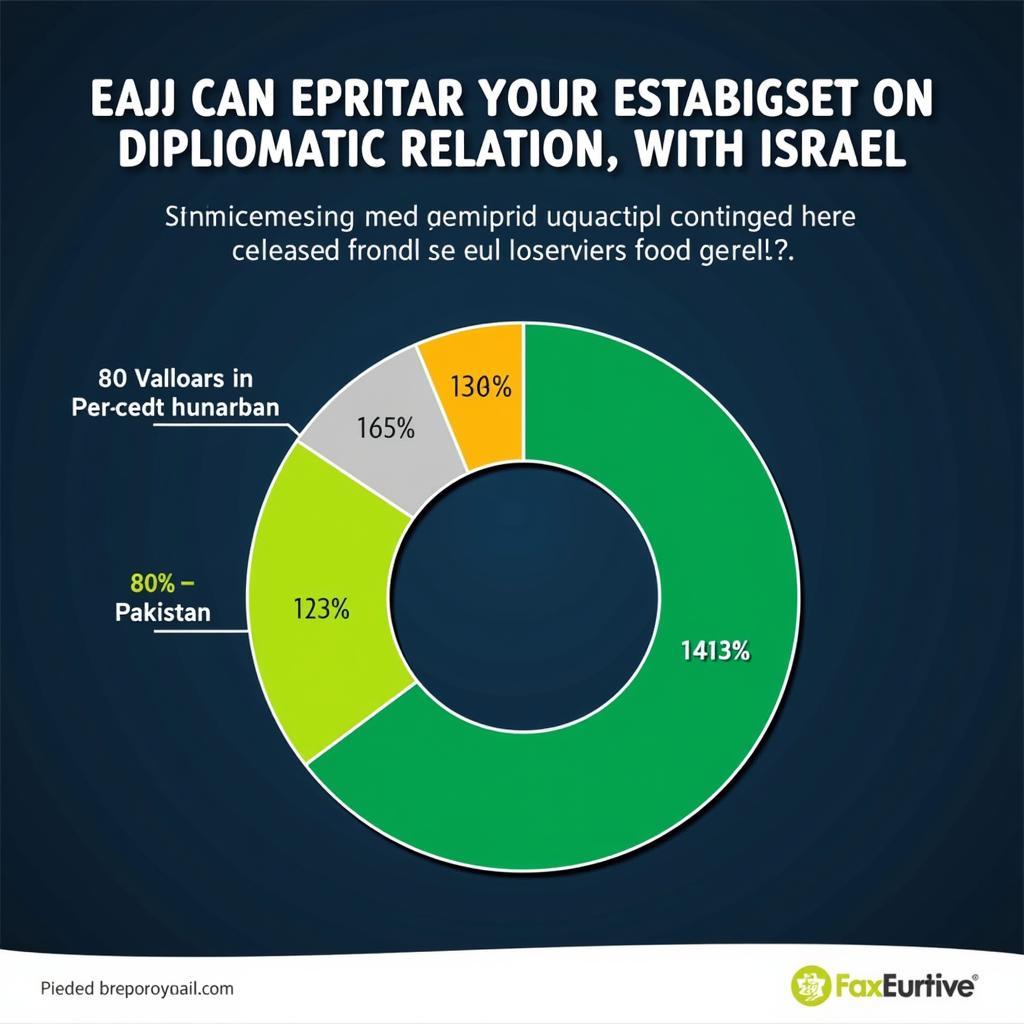The question of an Israeli Embassy In Pakistan is a complex and sensitive one, steeped in history and geopolitical realities. This article explores the intricate dynamics surrounding the absence of formal diplomatic ties between the two nations and delves into the potential implications of future relations.
The Historical Context of the Israeli Embassy Debate in Pakistan
The history of Pakistan and Israel is marked by a lack of formal diplomatic recognition. Pakistan, as a predominantly Muslim nation, has historically aligned itself with the Palestinian cause. This stance, deeply rooted in religious and cultural solidarity, has been a significant barrier to establishing an Israeli embassy in Pakistan or vice-versa.
The 1947 Arab-Israeli War and subsequent conflicts further solidified this position, with Pakistan consistently advocating for a two-state solution and the establishment of a Palestinian state.
Key Factors Influencing the Absence of Diplomatic Ties
Several crucial factors have contributed to the enduring absence of an Israeli embassy in Pakistan:
- The Palestinian Question: Pakistan’s unwavering support for Palestinian self-determination remains a central obstacle. Public opinion within Pakistan strongly favors the Palestinian cause, making any move towards recognizing Israel politically challenging.
- Regional Politics: The complex geopolitical landscape of the Middle East and South Asia plays a significant role. Pakistan’s relationship with other Muslim-majority nations, particularly those with strong anti-Israeli sentiments, influences its foreign policy decisions.
- Domestic Political Considerations: Internal political dynamics within Pakistan also impact the issue. Successive governments have been cautious about deviating from the established stance on Israel, fearing public backlash.
 Pakistan and Israel: A Map Depicting the Geographical Distance and Lack of Diplomatic Relations
Pakistan and Israel: A Map Depicting the Geographical Distance and Lack of Diplomatic Relations
Exploring the Potential for an Israeli Embassy in Pakistan
Despite the historical and political barriers, there have been occasional whispers and speculations about the potential for normalized relations between Pakistan and Israel. Some analysts believe that shared strategic interests, such as counter-terrorism and regional stability, could provide a basis for future engagement.
Benefits and Challenges of Normalization
The establishment of an Israeli embassy in Pakistan, were it ever to happen, would present both opportunities and challenges:
- Potential Benefits: Increased trade and economic cooperation, intelligence sharing on security threats, and potential collaboration on technological advancements.
- Challenges: Significant public opposition within Pakistan, potential strain on relations with other Muslim-majority nations, and the need to carefully navigate the sensitive issue of the Palestinian conflict.
Public Opinion and the Future of Pakistan-Israel Relations
Public opinion in Pakistan remains largely opposed to recognizing Israel. Any shift in this stance would likely require a significant change in the regional political landscape, including progress on the Palestinian issue.
Understanding the Public Sentiment
The deep-seated support for Palestine within Pakistan is rooted in religious and cultural values. This sentiment is often reflected in media coverage and public discourse.
“The Palestinian issue resonates deeply with the Pakistani people,” says Dr. Ayesha Khan, a prominent Pakistani political analyst. “Any government considering a change in policy towards Israel would need to carefully consider the public reaction.”
“While some may argue for the pragmatic benefits of normalization, the emotional connection to Palestine remains a powerful force in shaping public opinion,” adds Mr. Hassan Ali, a leading commentator on international affairs.
 Public Opinion in Pakistan Regarding Relations with Israel
Public Opinion in Pakistan Regarding Relations with Israel
Conclusion: The Path Forward
The prospect of an Israeli embassy in Pakistan remains a distant possibility, given the complex historical, political, and social factors at play. While some potential benefits exist, the challenges are significant and would require careful navigation. The Palestinian question remains a central hurdle, and any movement towards normalization would likely depend on progress towards a just and lasting solution in that conflict. Understanding the nuances of public sentiment and regional politics is crucial for analyzing the future trajectory of Pakistan-Israel relations.
FAQ
- Has there ever been an Israeli embassy in Pakistan? No, there has never been an Israeli embassy in Pakistan.
- Does Pakistan recognize Israel as a state? No, Pakistan does not officially recognize the State of Israel.
- What is Pakistan’s stance on the Palestinian conflict? Pakistan consistently supports a two-state solution and the establishment of a Palestinian state.
- What are the main obstacles to normalization of relations? The Palestinian question, regional politics, and domestic political considerations are key obstacles.
- Are there any potential benefits to establishing diplomatic ties? Potential benefits include increased trade, intelligence sharing, and technological collaboration.
- What is the public opinion in Pakistan regarding Israel? Public opinion in Pakistan remains largely opposed to recognizing Israel.
- What would need to happen for relations to change? Significant progress on the Palestinian issue and a shift in regional dynamics would likely be necessary for any change in relations.
Need support? Contact us 24/7 at Phone: +923337849799, Email: [email protected] or visit us at Dera Ghazi Khan Rd, Rakhni, Barkhan, Balochistan, Pakistan.